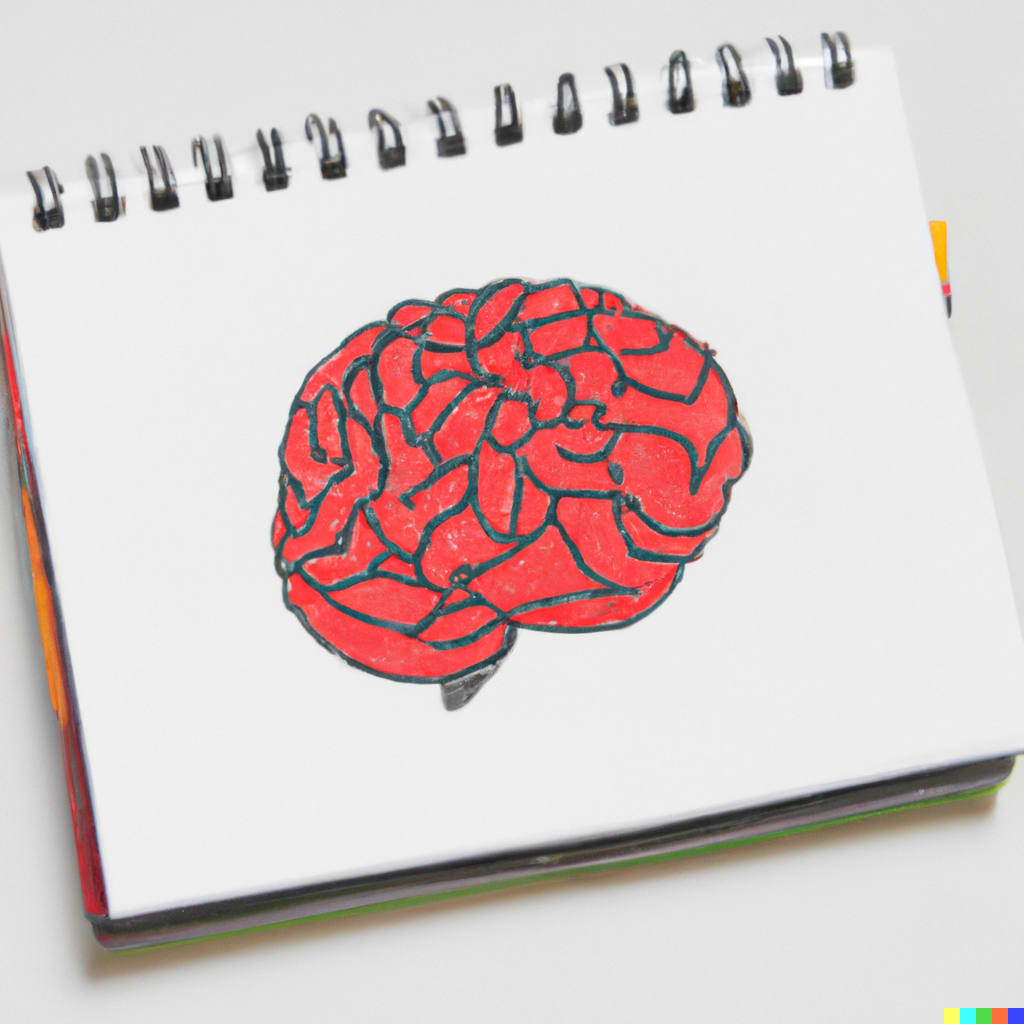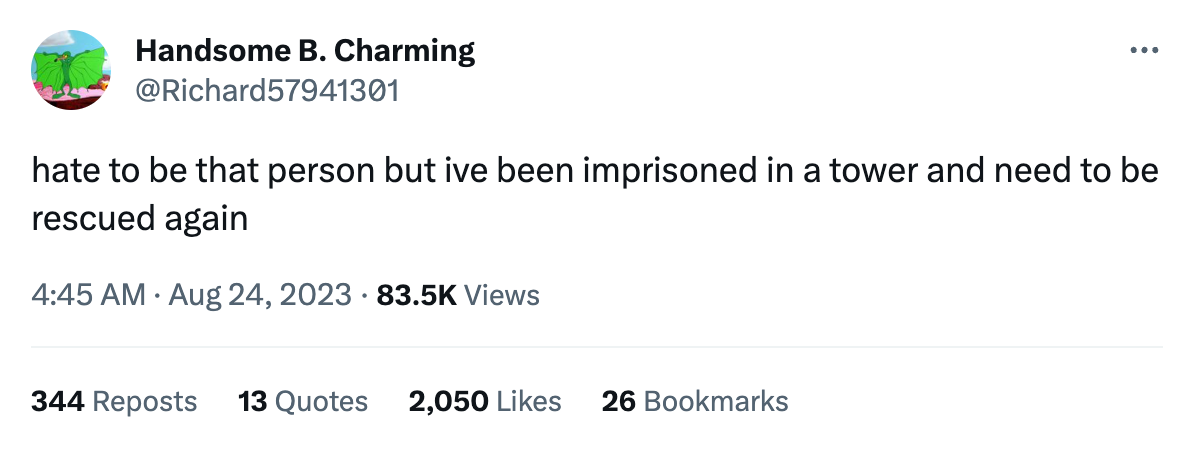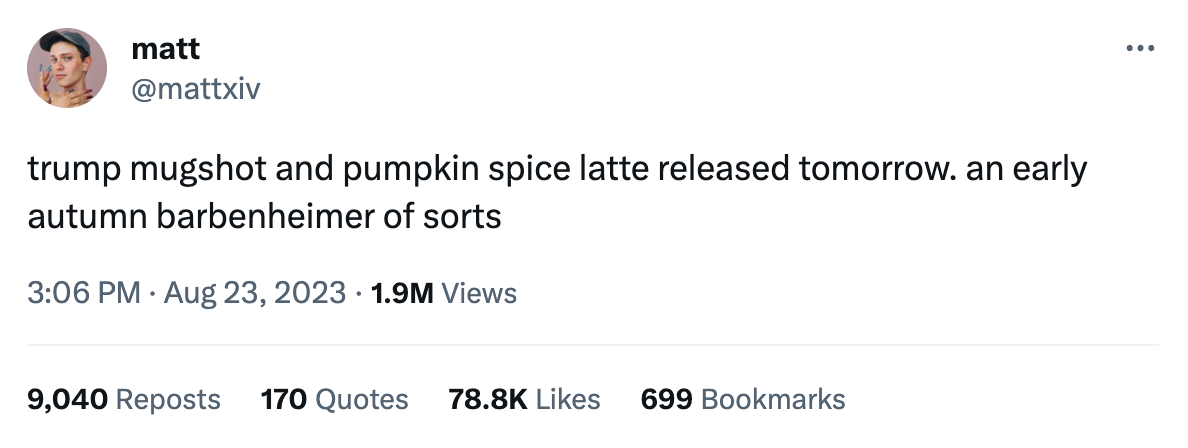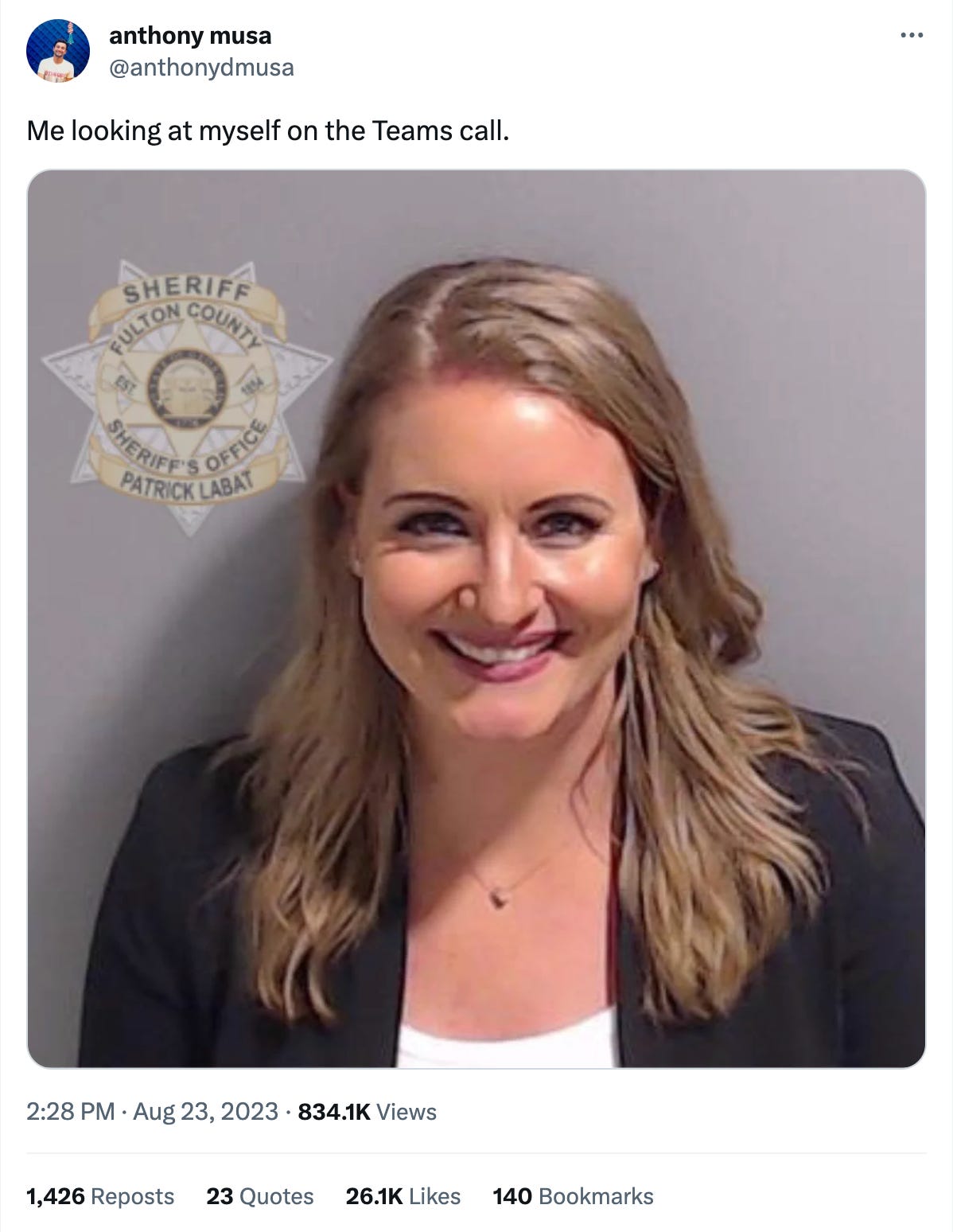Why note-taking apps don't make us smarter
Here’s this week’s free column — a step back from the news cycle to ask a question that has been plaguing me for some time now: why do the fancy subscription note-taking apps I keep trying fail to make me any better at my job? Do you value independent, ad-free reporting on platforms and the AI revolution? If so, maybe kick us ten bucks? It would mean a lot to us. Plus, we’ll email you first with all our scoops — like with our recent look at why the former Twitter may be bracing for an exodus of staffers. ➡️
Why note-taking apps don't make us smarterThey're designed for storage, not sparking insights. Can AI change that?Today let’s step outside the news cycle and turn our attention toward a topic I’m deeply invested in but only rarely write about: productivity platforms. For decades now, software tools have promised to make working life easier. But on one critical dimension — their ability to improve our thinking — they don’t seem to be making much progress at all. Meanwhile, the arrival of generative artificial intelligence could make the tools we use more powerful than ever — or they could turn out to be just another mirage. To understand where things went wrong, I want to focus on the humble note-taking app: the place where, for so many of us, thinking begins. I. Earlier this week I read a story about farmers. “America’s Farmers Are Bogged Down by Data,” read the headline on Belle Lin’s story in the Wall Street Journal. I thought to myself: You and me both, farmer! And I read the piece. Over the past decade, farmers have been offered all manner of software tools to analyze and manage their crops. In general, though, the more software that farmers use, the more they find themselves overwhelmed by data that the tools collect. “We’re collecting so much data that you’re almost paralyzed with having to analyze it all,” one farmer told the Journal. As a journalist, I’ve never collected as much data as I do now. The collapse of Twitter has me browsing four or five text-based social feeds a day, scanning for news and thoughtful conversation. The growing popularity of arXiv and pre-prints in general has left me with a stack of research that I will never get through. Book galleys pile up in my house. Meanwhile, all day long I browse the web. Stories that might belong in Platformer get saved into a database in the productivity platform Notion. Every link that has ever been in this newsletter is stored there, in many cases with the full article text. Collectively, this material offers me an abundance of riches — far more to work with than any beat reporter had such easy access to even 15 years ago. And yet most days I find myself with the same problem as the farmer: I have so much information at hand that I feel paralyzed. II. One solution to this data paralysis is to take notes. As a journalist, of course, I have always taken notes. A few years ago, I thought we had seen some true breakthroughs in note-taking, and increasingly put my faith in those tools not just to capture my writing but to improve the quality of my thinking. The breakthrough tool was Roam Research. In 2021, I wrote here about my first year using the subscription-based software, which had two key insights into knowledge work. One was to make professional note-taking feel more like journaling. It turns out that a fresh note created each day, labeled with a date, is a good canvas for collecting transient thoughts, which can serve as a springboard into deeper thinking. The second is known to note-taking nerds as “bidirectional linking.” Standard links, like the ones you find on the web, go in only one direction — from one page to another. In a note-taking app, bidirectional links join two pages together. This effectively lets you add backlinks to any concept — a company that’s important to you, say, or a concept that’s on your mind — and then let you browse everything you’ve collected related to that concept at your leisure. On one level, that’s not so different from adding tags to notes. But tags are more about search. Bidirectional links, which some apps show you on pages that include snippets of all the other notes that contain the same link, are more about browsing and rediscovery. Initially, I threw myself into this kind of associative note-taking. I gathered links around concepts I wanted to explore (“the internet enables information to travel too quickly,” for example, or social networks and polarization). When I had an interesting conversation with a person, I would add notes to a personal page I had created for them. A few times a week, I would revisit those notes. I waited for the insights to come. And waited. And waited. My gusto for concept-based, link-heavy note-taking diminished. Roam’s development slowed to a crawl, and I spent a season with the lightweight, mostly free alternative known as Obsidian. Obsidian’s brutalist design wore on me, though, and eventually I decamped for the more polished user interface of Mem. (These apps all enable the exporting of your notes in Markdown, making switching relatively painless.) I continue to journal most days, and occasionally find myself working to refine one concept or another among those notes. But the original promise of Roam — that it would improve my thinking by helping me to build a knowledge base and discover new ideas — fizzled completely. III. One interpretation of these events is that the software failed: that journaling and souped-up links simply don’t have the power some of us once hoped they did. Another view, though, is that they are up against a much stronger foe — the infinite daily distractions of the internet. Note-taking, after all, does not take place in a vacuum. It takes place on your computer, next to email, and Slack, and Discord, and iMessage, and the text-based social network of your choosing. In the era of alt-tabbing between these and other apps, our ability to build knowledge and draw connections is permanently challenged by what might be our ultimately futile efforts to multitask. Ezra Klein wrote beautifully about this situation this week in the New York Times:
My first thought upon reading this was that it seems rare for me to spend even 47 seconds looking at one screen on my computer without at least glancing at another. (I bought a 38” widescreen monitor for the express purpose of being able to glance at many windows simultaneously. At the time I understood this as a tool for enhancing my productivity.) My second thought is that if you want to take good notes, you have to first extract your mind from the acid bath. IV. Klein’s piece starts from the observation that productivity growth is now about half of what it was in the 1950s and ‘60s. The internet’s arrival briefly speeded it up, he writes, but the more we stared at our screens the slower our productivity improved. He worries that AI will have a similar effect on the economy — promising to make us more productive, while simultaneously inventing so many new distractions and entertainments that they overwhelm and paralyze us. The piece stuck with me, because there is one specific way I am counting on AI to make me more productive. It goes back to that database of links I’ve been building in Notion, and the insights I was hoping to get out of Roam. Earlier this year, like many productivity tools, Notion added a handful of AI features. I use two of them in my links database. One extracts the names of any companies mentioned in an article, creating a kind of automatic tagging system. The other provides a two- or three-sentence summary of the article I’m saving. Neither of these, in practice, is particularly useful. Tags might theoretically be useful for revisiting old material, but databases are not designed to be browsed. And while we publish summaries of news articles in each edition of the newsletter, we wouldn’t use AI-written summaries: among other reasons, they often miss important details and context. At the same time, the database contains nearly three years of links to every subject I cover here, along with the complete text of thousands of articles. It is here, and not in a note-taking app, that knowledge of my beat has been accreting over the past few years. If only I could access that knowledge in some way that went beyond my memory. It’s here that AI should be able to help. Within some reasonable period of time, I expect that I will be able to talk to my Notion database as if it’s ChatGPT. If I could, I imagine I would talk to it all the time. Much of journalism simply involves remembering relevant events from the past. An AI-powered link database has a perfect memory; all it’s missing is a usable chat interface. If it had one, it might be a perfect research assistant. I imagine using it to generate little briefing documents to help me when I return to a subject after some time away. Catch me up on Canada’s fight with Meta over news, I might say. Make me a timeline of events at Twitter since Elon Musk bought it. Show me coverage of deepfakes over the past three months. Today’s chatbots can’t do any of this to a reporter’s standard. The training data often stops in 2021, for one thing. The bots continue to make stuff up, and struggle to cite their sources. But if I could chat in natural language with a massive archive, built from hand-picked trustworthy sources? That seems powerful to me, at least in the abstract. Of course, the output from this kind of AI tool has to be trustworthy. A significant problem with using AI tools to summarize things is that you can’t trust the summary unless you read all the relevant documents yourself — defeating the point of asking for a summary in the first place. Still, if you are the sort of productivity-tool optimist who will try any to-do list or calendar app on the off chance it makes you even a little happier at work, it seems to me that a database you can talk to might be the next-generation note-taking tool we have been waiting for. V. I’ve learned something else about note-taking apps, though, since my mania for them began in 2020. In short: it is probably a mistake, in the end, to ask software to improve our thinking. Even if you can rescue your attention from the acid bath of the internet; even if you can gather the most interesting data and observations into the app of your choosing; even if you revisit that data from time to time — this will not be enough. It might not even be worth trying. The reason, sadly, is that thinking takes place in your brain. And thinking is an active pursuit — one that often happens when you are spending long stretches of time staring into space, then writing a bit, and then staring into space a bit more. It’s here here that the connections are made and the insights are formed. And it is a process that stubbornly resists automation. Which is not to say that software can’t help. Andy Matuschak, a researcher whose spectacular website offers a feast of thinking about notes and note-taking, observes that note-taking apps emphasize displaying and manipulating notes, but never making sense between them. Before I totally resign myself to the idea that a note-taking app can’t solve my problems, I will admit that on some fundamental level no one has really tried. “The goal is not to take notes — the goal is to think effectively,” Matuschak writes. “Better questions are “what practices can help me reliably develop insights over time?” [and] “how can I shepherd my attention effectively?” I’ll admit to having forgotten those questions over the past couple years as I kept filling up documents with transient strings of text inside expensive software. And I accept that to be a better thinker, I’ll have to devote more time and attention to wrestling with what I find. If there’s a friendly AI to help me do that, though, I’ll be first in line to try it. On the podcast this week: Making sense of New York’s Airbnbacklash. Then, the Times’ Erin Griffith joins to tell us the craziest things that AI startup founders are doing to find the GPUs they need. Finally, we select the AI songs of the summer. Apple | Spotify | Stitcher | Amazon | Google Want to hang out with me in person? Applications are open for this year’s Code Conference, hosted by me, The Verge’s Nilay Patel, and CNBC’s Julia Boorstin. Join us for live, on-stage journalism with X/Twitter CEO Linda Yaccarino, GM CEO Mary Barra, Microsoft CTO Kevin Scott, and many more speakers to come. It’s all happening September 26th and 27th at The Ritz-Carlton, Laguna Niguel. Follow the latest here. Governing
Industry
Those good postsFor more good posts every day, follow Casey’s Instagram stories. (Link) (Link) (Link) Talk to usSend us tips, comments, questions, and note-taking solutions: casey@platformer.news and zoe@platformer.news. By design, the vast majority of Platformer readers never pay anything for the journalism it provides. But you made it all the way to the end of this week’s edition — maybe not for the first time. Want to support more journalism like what you read today? If so, click here: |
Older messages
Elon Musk's creep show
Tuesday, August 15, 2023
Caught in a series of lies about his willingness to fight Mark Zuckerberg, the billionaire's disturbing spiral accelerates
It's time to change how we cover Elon Musk
Tuesday, August 8, 2023
After a weekend of whoppers about X and fighting Mark Zuckerberg, the press should take a more skeptical approach
How the Kids Online Safety Act puts us all at risk
Friday, August 4, 2023
Anti-speech laws are spreading from states to Congress, and the future of online speech could hang in the balance
Is X bracing for exodus?
Tuesday, August 1, 2023
As the company's illegal sign topples from Market Street, a fresh set of employees may also be looking to make the leap
How Facebook does (and doesn’t) shape our political views
Friday, July 28, 2023
Four long-awaited studies paint a muddy picture of social media's impact on public opinion
You Might Also Like
🚀 Ready to scale? Apply now for the TinySeed SaaS Accelerator
Friday, February 14, 2025
What could $120K+ in funding do for your business?
📂 How to find a technical cofounder
Friday, February 14, 2025
If you're a marketer looking to become a founder, this newsletter is for you. Starting a startup alone is hard. Very hard. Even as someone who learned to code, I still believe that the
AI Impact Curves
Friday, February 14, 2025
Tomasz Tunguz Venture Capitalist If you were forwarded this newsletter, and you'd like to receive it in the future, subscribe here. AI Impact Curves What is the impact of AI across different
15 Silicon Valley Startups Raised $302 Million - Week of February 10, 2025
Friday, February 14, 2025
💕 AI's Power Couple 💰 How Stablecoins Could Drive the Dollar 🚚 USPS Halts China Inbound Packages for 12 Hours 💲 No One Knows How to Price AI Tools 💰 Blackrock & G42 on Financing AI
The Rewrite and Hybrid Favoritism 🤫
Friday, February 14, 2025
Dogs, Yay. Humans, Nay͏ ͏ ͏ ͏ ͏ ͏ ͏ ͏ ͏ ͏ ͏ ͏ ͏ ͏ ͏ ͏ ͏ ͏ ͏ ͏ ͏ ͏ ͏ ͏ ͏ ͏ ͏ ͏ ͏ ͏ ͏ ͏ ͏ ͏ ͏ ͏ ͏ ͏ ͏ ͏ ͏ ͏ ͏ ͏ ͏ ͏ ͏ ͏ ͏ ͏ ͏ ͏ ͏ ͏ ͏ ͏ ͏ ͏ ͏ ͏
🦄 AI product creation marketplace
Friday, February 14, 2025
Arcade is an AI-powered platform and marketplace that lets you design and create custom products, like jewelry.
Crazy week
Friday, February 14, 2025
Crazy week. ͏ ͏ ͏ ͏ ͏ ͏ ͏ ͏ ͏ ͏ ͏ ͏ ͏ ͏ ͏ ͏ ͏ ͏ ͏ ͏ ͏ ͏ ͏ ͏ ͏ ͏ ͏ ͏ ͏ ͏ ͏ ͏ ͏ ͏ ͏ ͏ ͏ ͏ ͏ ͏ ͏ ͏ ͏ ͏ ͏ ͏ ͏ ͏ ͏ ͏ ͏ ͏ ͏ ͏ ͏ ͏ ͏ ͏ ͏ ͏ ͏ ͏ ͏ ͏ ͏ ͏ ͏ ͏ ͏ ͏ ͏ ͏ ͏ ͏ ͏ ͏ ͏ ͏ ͏ ͏ ͏ ͏ ͏ ͏ ͏ ͏ ͏ ͏ ͏ ͏ ͏ ͏ ͏ ͏ ͏
join me: 6 trends shaping the AI landscape in 2025
Friday, February 14, 2025
this is tomorrow Hi there, Isabelle here, Senior Editor & Analyst at CB Insights. Tomorrow, I'll be breaking down the biggest shifts in AI – from the M&A surge to the deals fueling the
Six Startups to Watch
Friday, February 14, 2025
AI wrappers, DNA sequencing, fintech super-apps, and more. ͏ ͏ ͏ ͏ ͏ ͏ ͏ ͏ ͏ ͏ ͏ ͏ ͏ ͏ ͏ ͏ ͏ ͏ ͏ ͏ ͏ ͏ ͏ ͏ ͏ ͏ ͏ ͏ ͏ ͏ ͏ ͏ ͏ ͏ ͏ ͏ ͏ ͏ ͏ ͏ ͏ ͏ ͏ ͏ ͏ ͏ ͏ ͏ ͏ ͏ ͏ ͏ ͏ ͏ ͏ ͏ ͏ ͏ ͏ ͏ ͏ ͏ ͏ ͏ ͏ ͏ ͏ ͏ ͏ ͏ ͏
How Will AI-Native Games Work? Well, Now We Know.
Friday, February 14, 2025
A Deep Dive Into Simcluster ͏ ͏ ͏ ͏ ͏ ͏ ͏ ͏ ͏ ͏ ͏ ͏ ͏ ͏ ͏ ͏ ͏ ͏ ͏ ͏ ͏ ͏ ͏ ͏ ͏ ͏ ͏ ͏ ͏ ͏ ͏ ͏ ͏ ͏ ͏ ͏ ͏ ͏ ͏ ͏ ͏ ͏ ͏ ͏ ͏ ͏ ͏ ͏ ͏ ͏ ͏ ͏ ͏ ͏ ͏ ͏ ͏ ͏ ͏ ͏ ͏ ͏ ͏ ͏ ͏ ͏ ͏ ͏ ͏ ͏ ͏ ͏ ͏ ͏ ͏ ͏ ͏ ͏ ͏ ͏ ͏ ͏ ͏ ͏ ͏ ͏ ͏






